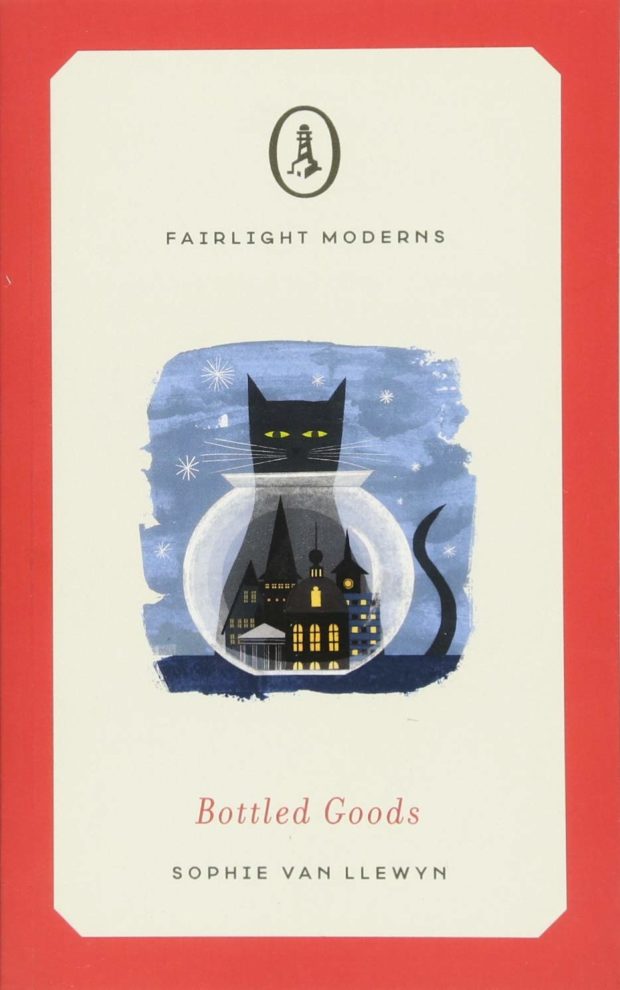You have no items in your cart. Want to get some nice things?
Go shoppingI was drawn to Bottled Goods after hearing it was set in 1970s Romania. I was even more attracted when I heard that the book’s author, Sophie Van Llewyn, had written it as a series of flash fictions, some of which she’d entered into competitions – some of which had won prizes. What a clever woman! I thought. (I still think that, by the way).
So my big question when starting the book was “How is this going to work?”
The book starts tense and funny, with brilliant observation of the humans that populate it. The protagonist, Alina, becomes a “person of interest” along with her (pretty useless) husband, after his brother defects to the west. Alina turns to her aunt for help. She is the wife of a communist leader and a secret practitioner of traditional Romanian magic.
Sophie Van Llewyn does a superb job of combining traditional Romanian folklore with magical realism, which of course was traditionally used in communist regimes in Eastern Europe – as well as in fascist states in Latin America – to convey sensitive political ideas in a way that might not escape the sensors if written in a more conventional literary form. I thought that was a delightful touch and, whether conscious or not, a fitting tribute to writers from the Communist era.
The characters are delightfully flawed cruddy people. The prose is tight, witty, vivid and atmospheric. The comic timing well delivered. When the tension went up a notch, I felt what Alina felt, as if I was part of her. Each flash fiction was delightful in its own right and written in a style that was dictated, I felt, by what was best for that individual flash, which fitted perfectly with the different stages of Alina’s life.
Being a series of flashes allowed for considerable freedom in the way the chapters were written – in first person, third person, present or past tense, graphs, lists, and quotes “from my mother”. I especially loved the chapters that are lists – “How to attract (unwanted) attention from the communist authorities”, and “What we had to give away so that we could buy a fourteen-year-old Dacia so that we would have an independent means of transportation in order to flee from the country”.
The effect of every piece of action being contained within 1,000 words or less was to speed up the story. Every word on the page pulled its weight to communicate mood, action, setting etc. This was powerful. However, I don’t think it had a positive effect on the plot, which felt comparatively rushed and unresolved in places. About halfway through some of the chapters began to feel less like flash fictions and more like links. But this is still a great book, especially for those of us who like flash fiction, poetry and our literature experimental.
Bottled Goods is published by Fairlight Books.

About Juno Baker
Juno Baker is a freelance writer, and editor of the University of Cambridge's Leading Change website. She has written articles for the Guardian and once interviewed Dolly Parton. Her fiction has been placed in several competitions – including Winchester Writers Festival, Pindrop, Short Fiction and Rubery – and was recently shortlisted for the VS Pritchett Short Story Prize. Her stories have also appeared in numerous magazines and anthologies, most recently, Mslexia, Unthology and Litro.
- Web |
- More Posts(13)





